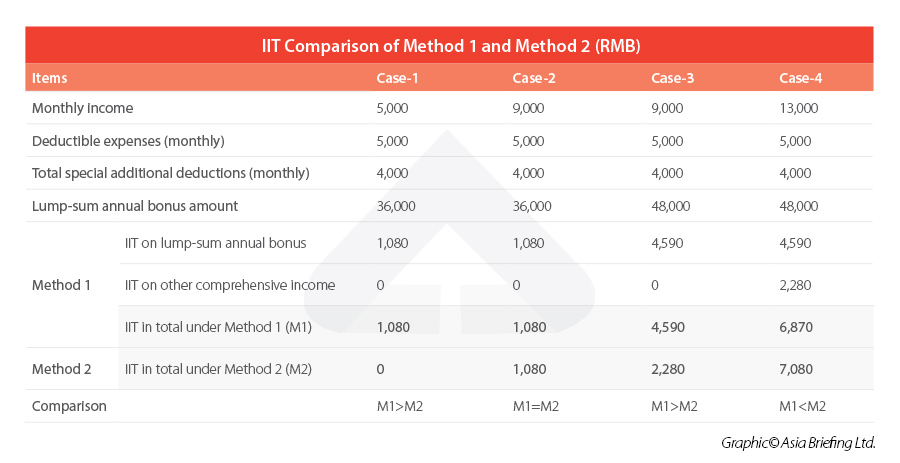Preparing for the Year of the Dragon: HR Strategies and Travel Trends During Chinese New Year 2024
Chinese New Year 2024 is expected to see an uptick in consumption and travel, buoyed by the extra-long holiday and economic recovery experienced after the lifting of COVID-19 restrictions. However, HR and tax teams will also have their hands full, grappling with the issuance of annual bonuses and the seasonal increase in resignations. We provide an overview of tax mechanisms for annual bonuses, discuss mechanisms to retain employees, and explore travel and consumption trends over the eight-day holiday.
On February 10, 2024, people across China, as well as many other countries in East and Southeast Asia, will celebrate the start of the Year of the Dragon. A year on from the lifting of COVID-19 restrictions in China, the eight-day Chinese New Year (CNY) holiday is expected to see a major surge in travel and consumption as people head home for family reunions or set off for a week of travel and tourism.
While there will be much to celebrate this year, CNY can be a stressful period for employers. In addition to assessing whether to issue annual bonuses, employers may also have to grapple with resignations and implement new strategies for improving employee satisfaction and retention.
This article provides an overview of companies’ obligations regarding statutory leave and annual bonuses and discusses methods for improving employee retention. We also discuss predicted travel trends for the 2024 CNY holiday.
Statutory leave and recommended additional leave in Chinese New Year 2024
The 2024 CNY Holiday will run from February 10 to 17, a total of eight days. This means that the first day of the holiday will start on New Year’s Day (正月初一), rather than New Year’s Eve (除夕), as has been the norm in past years.
However, the official announcement of the 2024 holiday calendar from the State Council encourages employers to arrange for employees to take off New Year’s Eve (Friday, February 9) as well, either as an additional concessionary day off or as part of their annual leave. This is because New Year’s Eve is traditionally an important family occasion within the CNY holiday and a day on which many people typically start their travels. Companies are nonetheless not legally required to provide employees with a day off on February 9 but may lose goodwill with employees if they do not allow them to take this day off.
| 2024 Chinese New Year Holiday Calendar | ||||||
| Monday | Tuesday | Wednesday | Thursday | Friday | Saturday | Sunday |
| Feb 1 – work | Feb 2 – work | Feb 3 – weekend | Feb 4 – make-up day | |||
| Feb 5 – work | Feb 6 – work | Feb 7 – work | Feb 8 – work | Feb 9 – work | Feb 10 – off | Feb 11 – off |
| Feb 12 – off | Feb 13 – off | Feb 14 – off | Feb 15 – off | Feb 16 – off | Feb 17 – off | Feb 18 – make-up day |
As is customary, employees will be required to work two make-up days for the CNY holiday: one on Sunday, February 4, and one on Sunday, February 18. These will be considered normal work days, and employees are not eligible for overtime, weekend, or holiday pay.
Note that although the statutory New Year holiday is from February 10 to 17, the “New Year period” in the context of travel and holidaymaking is generally longer, beginning one to two weeks before the start of the official holiday and lasting around a week after the end. This is because many people will take additional annual leave to extend the holiday or avoid peak travel times.
Some industries and companies also provide adjusted holidays for their staff to keep operations and production going over the official holiday period, in which case they will be obliged to pay overtime or provide time off in lieu for certain days. Over the CNY holiday, February 10 to 12 are considered statutory leave, and employees who work on these days must receive at least 300 percent of their base daily wage. The remaining days off (February 13 to 17) are either weekends or adjusted workdays (holidays that are compensated for with additional workdays). Employees who work on these days must be provided with either 200 percent of their base daily wage or time off in lieu.
HR and tax considerations during Chinese New Year 2024
Annual bonuses in 2024
In China, many companies will provide employees with a one-time end-of-year bonus before or around the CNY holiday. One of the most common ways that companies calculate the bonus amount is the “13th-month bonus” wherein the company pays an additional month’s salary around the CNY holiday. However, companies can implement their own bonus system as they see fit.
Not all companies provide end-of-year bonuses, and it is not a legal requirement to do so. In fact, with many companies looking to reduce costs in the post-COVID era, annual bonuses have been in decline in recent years. A survey conducted by recruitment platform Zhaopin and published in its 2023 White-Collar Year-End Bonus Survey Report found that only 20.2 percent of white-collar workers were certain that they would receive year-end bonuses for CNY 2024, down from 26.9 percent last year. The average size of the bonuses handed out has also decreased from RMB 8,428 (US$1,187) for CNY 2023 to RMB 6,950 (US$979) for CNY 2024.
Companies that can afford to are advised to provide annual bonuses for their employees, as it is still an expectation of many employees and a key way of improving employee satisfaction.
Tax considerations for annual bonuses
Annual bonuses in China are subject to individual income tax (IIT). Currently, IIT on bonuses can be calculated in one of two ways:
- Method 1: Calculated and paid separately on the annual one-time bonus.
- Method 2: Calculated and paid on the annual one-time bonus combined with the employee’s total annual income.
The first method, which is considered preferential treatment as it may decrease the tax burden for some taxpayers, was set to expire at the end of 2023. However, China’s Ministry of Finance (MOF) and the State Taxation Administration (STA) announced in August 2023 that this method will be extended until the end of 2027. For a full breakdown of how these two methods work, see our article on the Preferential Tax Treatment for Annual One-Time Bonus.
In general, for employees with low basic salaries, it may be more beneficial to combine their annual bonuses with their basic salary to calculate the total IIT (under Method 2) because various deductions could be employed to reduce the tax burden. Meanwhile, for employees with comparatively high basic salaries, Method 1 can potentially reduce the tax burden.
 Retaining employees during the resignation season
Retaining employees during the resignation season
CNY is one of the main times of the year when people look to change jobs or career paths. This is partly because people want to stay in their current jobs long enough to receive their annual bonus. However, there is also a cultural element to this habit, as CNY symbolizes new beginnings and people take this opportunity to start afresh. Furthermore, with high resignations come more opportunities for job seekers to pursue.
The period after CNY can therefore be a stressful one for HR teams who are suddenly saddled with the task of filling various vacancies.
With many employers and employees facing economic difficulties, we expect that this phenomenon may be more acute this year. In addition to smaller and fewer annual bonuses being handed out, fewer companies are providing salary raises, and average raises are more modest than in previous years. In the 2024 Resignation and Salary Adjustment Research Report conducted by 51jobs HR Research Center, the research arm of the online recruitment platform 51jobs.com, 58.7 percent of survey respondents said they provided salary increases in 2023, a decrease of 9.6 percentage points from 2022.
Meanwhile, salaries increased by an average of 4.5 percent in 2023, slowing by 0.8 percentage points from the previous year. The report forecasts that corporate salary increases in 2024 will remain the same, growing 4.6 percent.
A general perception that companies are less willing to provide wage increases and promotions may lead more people to seek new opportunities.
Besides providing financial incentives to retain employees, companies can employ a variety of long-term strategies to improve overall satisfaction.
These include cultivating a positive work environment, promoting a healthy work-life balance, assuring job stability, and addressing employees’ career development needs. Promoting a healthy work-life balance for employees can also help to reduce strain in times of economic difficulty. Companies should carefully manage workloads and ensure that staff are given realistic targets.
Training and upskilling initiatives should also form part of a company’s talent strategy. In addition to demonstrating a commitment to employees’ professional development, it will increase the skill level of a company’s staff and boost productivity.
Providing the option of flexible or hybrid work arrangements can also help reduce stress for employees who benefit from a change in work environment. Whether through remote work options, flexible hours, or compressed work schedules, accommodating individual preferences enhances job satisfaction and reduces stress associated with rigid work structures.
Travel trends during Chinese New Year 2024
A year on from the lifting of COVID-19 restrictions, travel during the CNY period in 2024 is expected to surge compared to recent years.
According to the 2024 Spring Festival Holiday Travel Forecast Report (the “forecast report”) jointly compiled by Baidu Maps, the Highway Science Research Institute of the Ministry of Transport (MOT), and other organizations, travel volume over the 2024 CNY period is expected to exceed that of last year. Total travel during the eight-day CNY holiday period is expected to increase by more than 40 percent from 2023, with the busiest day of travel being on the last day of the holiday (February 17) as everyone returns home (journey departures at the beginning of the holiday is expected to be more staggered).
One of the major trends noted in recent years is the mixing of tourism and CNY celebrations, where families choose to get together in a new destination rather than in their hometown. Some of the most popular domestic destinations for this type of travel include Yunnan, Guangdong, and Fujian, as well as Beijing and Harbin for winter getaways. For international travel, Southeast Asia remains the most popular destination. Search data from Baidu.com shows that families and children account for as much as 42 percent of the CNY tourism cohort.
Whereas short-haul travel became popular during the pandemic, longer-distance travel is now back in vogue. Data from online travel agency Trip.com indicates that travel within the same province or to peripheral provinces will account for just 25 percent of overall travel during the 2024 CNY holiday, while inter-provincial long-distance travel will account for as much as 75 percent.
Meanwhile, data from the travel platform Mafengwo shows that people from so-called first-tier and new first-tier cities make up the majority of people traveling for pleasure during the holiday. It is expected that residents of the four first-tier cities of Beijing, Shanghai, Guangzhou, and Shenzhen alone will account for more than 48 percent of total tourist travel.
About Us
China Briefing is written and produced by Dezan Shira & Associates. The practice assists foreign investors into China and has done so since 1992 through offices in Beijing, Tianjin, Dalian, Qingdao, Shanghai, Hangzhou, Ningbo, Suzhou, Guangzhou, Dongguan, Zhongshan, Shenzhen, and Hong Kong. Please contact the firm for assistance in China at china@dezshira.com.
Dezan Shira & Associates has offices in Vietnam, Indonesia, Singapore, United States, Germany, Italy, India, and Dubai (UAE). We also have partner firms assisting foreign investors in The Philippines, Malaysia, Thailand, and Bangladesh.
- Previous Article China’s FDI Trends: Sources, Destinations, and Key Sectors
- Next Article Prepárese para el Año del Dragón: Estrategias de RRHH y tendencias de viaje durante el Año Nuevo Chino 2024









